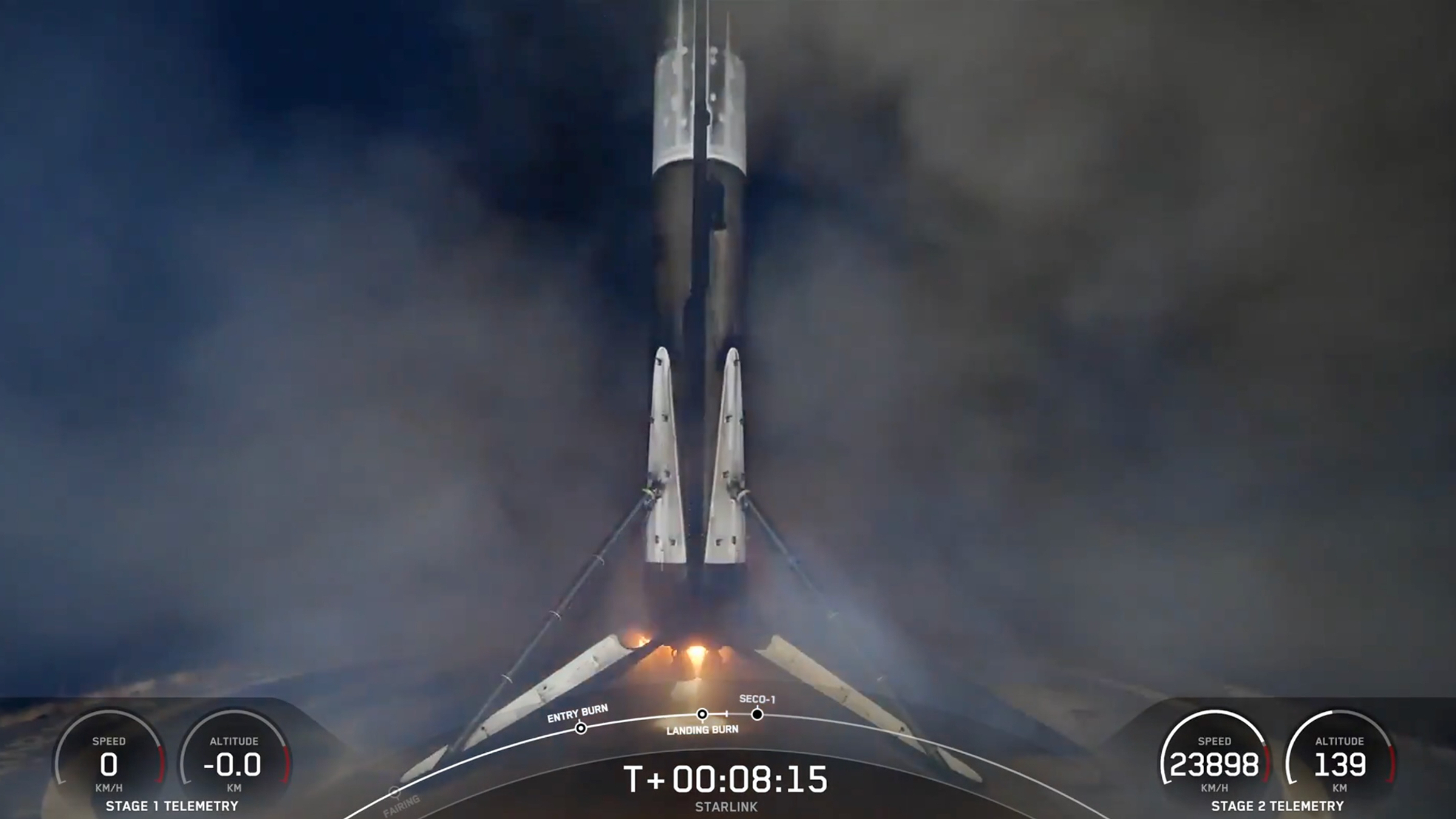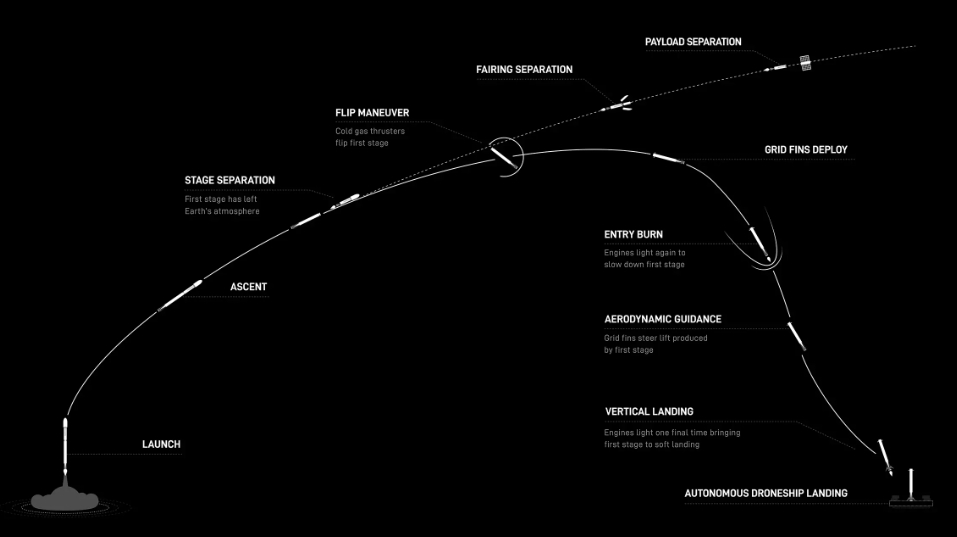SpaceX launches 21 Starlink satellites on Falcon 9 rocket, lands booster on ship at sea (video)
It was SpaceX's 41st Falcon 9 mission of the year.
Another batch of Starlink wireless internet satellites is in orbit after a full moon-lit SpaceX launch from Florida.
A SpaceX Falcon 9 rocket launched the Starlink 12-17 mission Saturday night (April 12) from NASA's Kennedy Space Center (KSC).
The Falcon 9 lifted off from KSC's historic Launch Complex-39A at 8:53 p.m. EDT (0053 on April 13 GMT), carrying a stack of 21 Starlink satellites toward low Earth orbit (LEO).

The Falcon 9's first stage, a booster designated B1083, shut down its nine Merlin engines and separated from the rocket's upper stage about 2.5 minutes into flight.
Approximately six minutes later, B1083 performed a landing burn to safely touch down on SpaceX's A Shortfall of Gravitas droneship, stationed in the Atlantic Ocean.

The rocket's upper stage, meanwhile, continued its ascent into LEO with its 21 payloads. Thirteen of those satellites are equipped with SpaceX's Direct to Cell technology, which aims to help eliminate cellular dead zones for mobile devices around the globe. In the U.S., SpaceX has partnered with T-Mobile to bring this capability to customers.
About one hour into flight, the Starlink satellites were released to begin individually maneuvering into more specific orbits to join SpaceX's growing megaconstellation.
Get the Space.com Newsletter
Breaking space news, the latest updates on rocket launches, skywatching events and more!

SpaceX's Starlink network currently consists of more than 7,000 satellites, operating in a grid that blankets nearly all of the planet, save for the polar regions. Starlink offers its users low-latency, high-speed internet from anywhere they are able to receive a satellite signal, with its network growing larger every week.
Saturday's launch was SpaceX's 42nd Falcon 9 mission of 2025. Twenty-eight of those have launched batches of Starlink satellites to join the constellation.
Join our Space Forums to keep talking space on the latest missions, night sky and more! And if you have a news tip, correction or comment, let us know at: community@space.com.

Josh Dinner is the Staff Writer for Spaceflight at Space.com. He is a writer and photographer with a passion for science and space exploration, and has been working the space beat since 2016. Josh has covered the evolution of NASA's commercial spaceflight partnerships and crewed missions from the Space Coast, as well as NASA science missions and more. He also enjoys building 1:144-scale model rockets and human-flown spacecraft. Find some of Josh's launch photography on Instagram and his website, and follow him on X, where he mostly posts in haiku.
You must confirm your public display name before commenting
Please logout and then login again, you will then be prompted to enter your display name.








